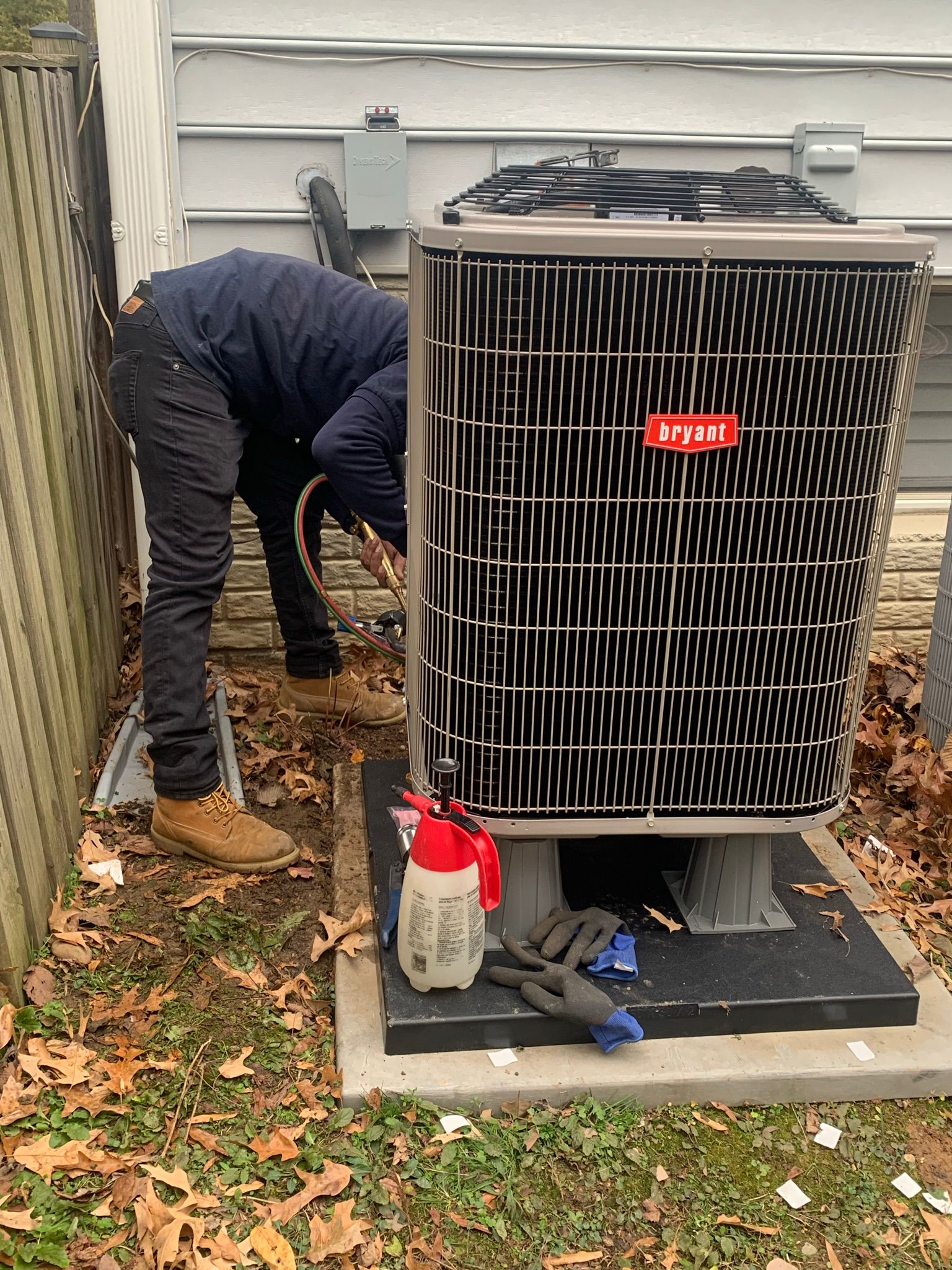
When most homeowners think about their heating and cooling systems, comfort and energy bills usually come to mind first. But there’s another important factor that often gets overlooked the environmental impact of your HVAC system. Every time your unit runs, it affects not just your home, but also the environment through energy consumption, greenhouse gas emissions, and even refrigerant use. Understanding these impacts is the first step toward making more sustainable choices for your home and community.
Energy Consumption and Greenhouse Gas Emissions
Heating and cooling account for a significant portion of household energy use in the United States. According to the U.S. Energy Information Administration, HVAC systems can be responsible for nearly half of a home’s total energy consumption. That means your furnace, air conditioner, or heat pump is one of the biggest contributors to your household’s carbon footprint.
When HVAC systems consume electricity generated from fossil fuels, carbon dioxide and other greenhouse gases are released into the atmosphere. These emissions contribute to climate change, air pollution, and overall environmental degradation. Even if your home uses a modern, energy-efficient system, running it excessively or neglecting regular maintenance can still create a considerable environmental burden.
Refrigerants and Their Global Warming Potential
Beyond energy use, the type of refrigerant in your air conditioning system plays a crucial role in its environmental impact. Older HVAC systems often rely on refrigerants such as R-22 (commonly known as Freon), which is now phased out due to its ozone-depleting properties. Modern systems use alternatives like R-410A, which are less harmful to the ozone layer but still have a high global warming potential if released into the atmosphere.
Leaks, poor maintenance, or improper disposal of old units can release these chemicals, accelerating global warming. Ensuring your system is serviced by a certified HVAC professional not only keeps it running efficiently but also helps prevent harmful refrigerant leaks.
Indoor Air Quality and Health Impacts
While energy and refrigerants are major concerns, indoor air quality is another environmental factor tied to HVAC systems. A poorly maintained unit can circulate dust, mold, allergens, and even chemicals throughout your living space. This not only affects the environment inside your home but also your family’s health and wellbeing.
By changing air filters regularly, scheduling seasonal tune-ups, and investing in systems with advanced air purification features, you can improve indoor air quality while reducing environmental strain. Cleaner systems don’t have to work as hard, which means they consume less energy and reduce emissions.
Sustainable Solutions for Reducing HVAC Impact
The good news is that there are many practical steps homeowners can take to reduce the environmental footprint of their HVAC systems without sacrificing comfort.
- Upgrade to Energy-Efficient Equipment
If your system is more than 10–15 years old, upgrading to a best rated unit can dramatically lower energy use. High-efficiency furnaces, heat pumps, and air conditioners require less power to deliver the same level of comfort, reducing both utility bills and emissions. - Invest in Smart Thermostats
Smart thermostats allow homeowners to optimize heating and cooling schedules, ensuring the system runs only when needed. Reducing unnecessary runtime cuts down on wasted energy and helps extend the lifespan of the equipment. - Schedule Regular Maintenance
Routine maintenance keeps systems running smoothly, reduces the chance of refrigerant leaks, and ensures airflow is balanced throughout your home. A well-maintained HVAC unit consumes less energy and lasts longer, lowering both environmental and financial costs. - Improve Home Insulation and Sealing
Sometimes, the problem isn’t with the HVAC system itself but with energy loss in the home. Insulating walls, attics, and crawl spaces and sealing air leaks can reduce the demand on heating and air conditioning systems. This means your HVAC unit doesn’t need to work as hard, saving energy and minimizing emissions. - Consider Renewable Energy Sources
Pairing an efficient HVAC system with renewable energy sources, such as solar panels, can nearly eliminate the carbon footprint of heating and cooling your home. While this may require an upfront investment, the long-term savings and environmental benefits are substantial.
Regional Considerations: Heating and Air Conditioning
Climate plays a major role in how much energy your HVAC system consumes. In areas like Manassas, VA, where residents experience both hot summers and chilly winters, heating and cooling needs can be intense throughout the year. This constant demand makes efficiency and sustainability even more important.
Choosing energy-efficient equipment, staying on top of seasonal tune-ups, and working with local HVAC professionals ensures your system runs smoothly and sustainably, no matter the weather. By taking proactive steps, homeowners in Manassas can balance comfort with environmental responsibility.
The Bigger Picture: Why It Matters
Reducing the environmental impact of your HVAC system is not just about lowering your energy bill. It’s about contributing to a healthier planet, reducing dependence on fossil fuels, and protecting future generations from the escalating effects of climate change. Every household that makes sustainable upgrades and choices creates a ripple effect that benefits the wider community and environment.
Final Thoughts
Your HVAC system is essential for comfort, but it doesn’t have to come at the expense of the environment. By investing in energy efficiency, maintaining your equipment, and considering sustainable upgrades, you can make a real difference. For homeowners in Manassas, VA, working with trusted professionals ensures that your heating and air conditioning system operates at peak efficiency while minimizing environmental impact.
If you’re ready to explore eco-friendly HVAC solutions or need expert maintenance, AVS Heating and Air Conditioning is here to help. With a commitment to comfort, efficiency, and sustainability, they provide the guidance and service you need to keep your home comfortable — and environmentally responsible.


